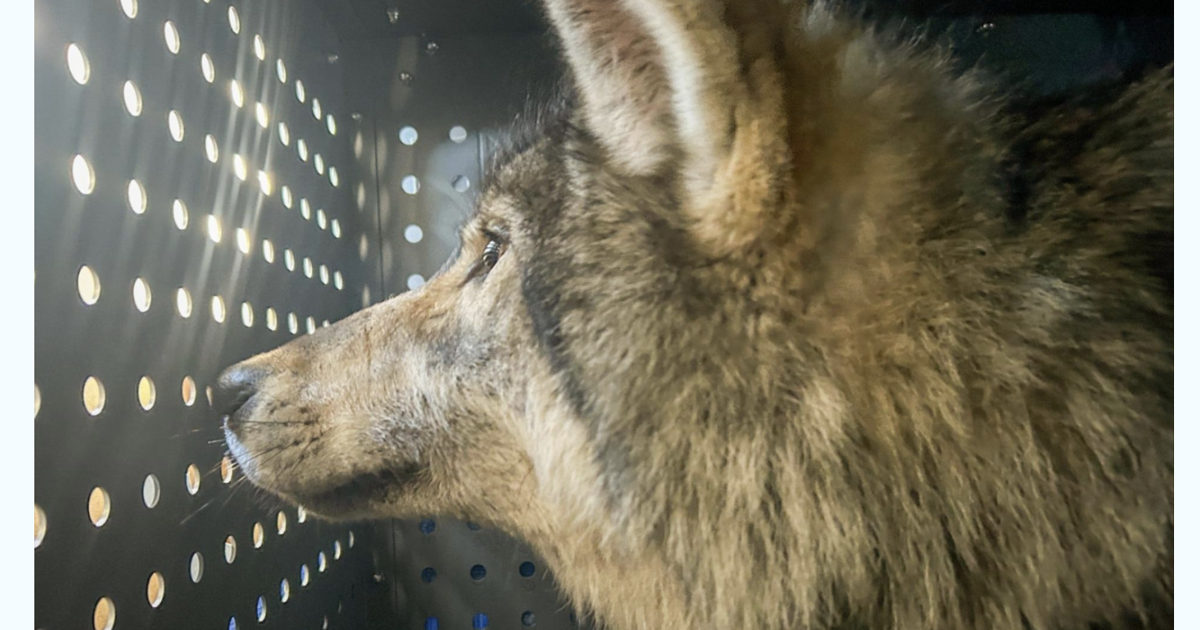The state’s most prominent coalition of hunters, anglers, and wildlife conservation groups announced today that it will formally oppose initiative #35, the 2026 proposal that would repeal most of the state’s wolf reintroduction program.
The Colorado Wildlife Conservation Project includes 22 different organizations, including Ducks Unlimited, the Theodore Roosevelt Conservation Partnership, Coloradans for Responsible Wildlife Management (which led opposition to last year’s Proposition 127) and Safari Club International, which this week settled a lawsuit with Colorado Parks and Wildlife over two CPW commissioners who authored an opinion piece in support of Prop 127, which led to claims the commissioners violated the state’s open meetings law, a claim they deny.
The letter to Patrick Davis, who heads Colorado ADvocates for Smart Wolf Policy, said they appreciate the open dialogue and opportunity to provide feedback on the proposed initiative over the last several months. They said they share the concerns about the 2020 ballot measure, Proposition 114, which won narrow voter approval and was rejected by almost every Western Slope county, including the counties where wolves have been reintroduced and have now slaughtered dozens of livestock and working dogs.
The coalition agreed that further wolf reintroductions should be suspended until the conflict management policies from the management plan are “fully adopted and operational.”
However, the initiative doesn’t satisfy other concerns, pushing the group to oppose efforts. That specifically refers to the initiative’s failure to “provide meaningful policy protections for landowners and state wildlife managers while having a de minimus impact on the ability of the state to achieve the proposed reintroduction efforts fully.”
The group wrote that efforts should improve CPW wolf management capacity, provide ranchers with depredation protection, and address ongoing management needs.
The group said the ballot measure’s timeline doesn’t work, as the state will likely achieve its desired reintroduction objectives before the November 2026 election.
The wolf management plan calls for up to 50 wolves to be reintroduced, although the ballot measure required only those wolves to be reintroduced by Dec. 31, 2023, without a specified number. That has been accomplished, with 10 wolves from Oregon transplanted to Colorado in 2023 to Grand and Summit counties and another 15 from British Columbia to Eagle and Pitkin counties in January.
The group wrote that the initiative also doesn’t address the wolf management plan’s “shortcomings,” such as issues around transferring management authority from U.S. Fish & Wildlife to CPW or delisting gray wolves from the endangered species list pending a federal delisting decision.
Pursuing initiative #35 will divert “community sweat equity and limited financial resources towards an endeavor that promises little return on investment at a time when aggressive, proactive policy measures that address future conditions are needed,” the group wrote.
Davis told Colorado Politics that Smart Wolf Policy sees “the synergy of a multi-action approach that includes 1) stakeholder recommendations for better management, 2) our ballot measure which scopes the cost of management while adding management flexibility and reimbursement authority, 3) the potential for delisting at the federal level, and 4) the recent recommendations from the state legislature.”
These combined approaches, he wrote. “are important, powerful, mutually reinforcing, and comprise a serious strategy for better outcomes. We support all of the above and hope all stakeholders will too.”
Patrick Davis
The initiative has another problem: a challenge with the state’s title board.
There are two ballot measures: Initiative #13 has had its petition approved and is now officially okayed for signature collections, due August 27. That initiative simply says the wolf reintroduction program would end on Dec. 31, 2026.
The other, initiative #35, has been challenged for violating the state’s law requiring ballot initiatives to address only a single subject.
Steven Ward, represented by attorney Suzanne Taheri, challenged the ballot measure, which has four subjects. Ward points out that the program will end before voters decide on the ballot measure.
The second subject removes gray wolves’ “nongame” status and places them in wildlife status, which Ward said would revoke protections and reporting requirements contained in CPW rules. It also bans all wolf reintroduction, which Ward wrote would extend the import ban beyond the gray wolf.
Ward wrote that this would impact “captive scientific, zoological, or educational purposes recognized under current Colorado law.” Another subject pertains to herding animals; the ballot measure redefines livestock to include herding animals, which is outside the measure’s primary purpose, to end wolf reintroduction.
Ward wrote that the final subject is prohibiting the importation of wolves, not just gray wolves, from out-of-state.
A similar challenge was filed by La Plata residents Clint McKnight and Florence Gaia.
Davis has continued to send out appeals for donations for the initiative and blasted those challenging the ballot initiative in an email this week to “Help Us Stop Special Interest [sic] Lawfare” mounted by “Denver lawyer-lobbyists.” None of the challengers are lobbyists registered with the Secretary of State, and Davis did not respond to a request for clarification.
A first fundraising report is expected next week.
